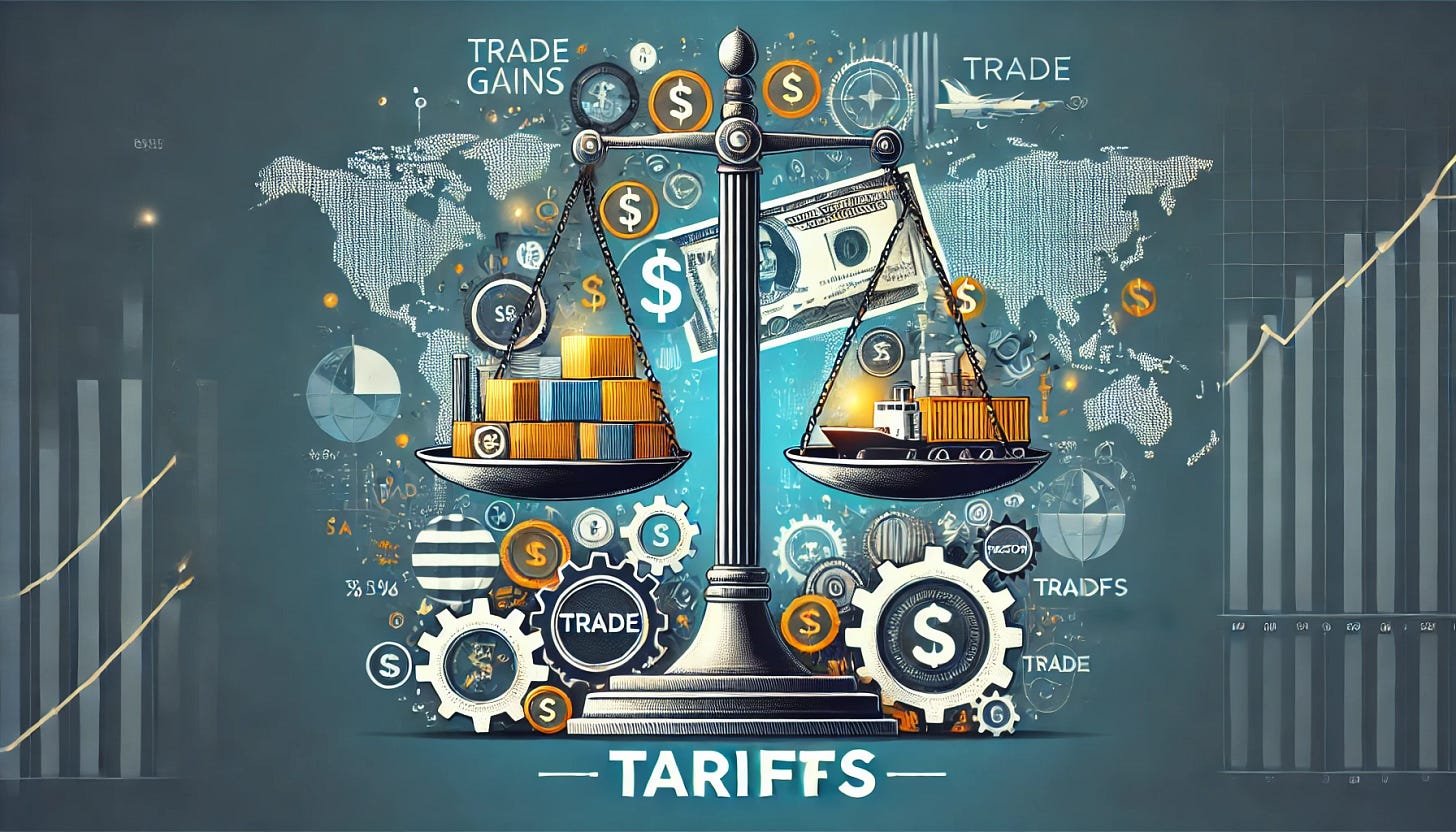Do Tariffs Ever Make Economic Sense?
Most economists oppose tariffs, but there are instances when they can serve a useful purpose.
Donald Trump is making news this week with his proposal for a 25 percent tariff on goods from Canada and Mexico. While most economists view these import taxes with skepticism, their likely return to prominence as a key part of Trump’s economic agenda raises the question as to when tariffs might serve some legitimate economic or strategic purpose.
Traditional economic wisdom opposes tariffs. They function as a tax on international trade, typically leading to higher prices for consumers and sometimes sparking retaliatory measures from trading partners. While tariffs tend to be justified on the basis that they will create domestic jobs or improve a nation’s trade balance, the evidence for job creation is mixed; and they don’t seem to reduce the trade deficit meaningfully.
In specific instances, however, carefully targeted tariffs can serve other purposes. The obvious case for imposing tariffs is as a revenue-raising device. As Donald Trump likes to point out, the U.S. central government was once heavily dependent on tariffs for financing. Even most economists will agree the optimal tariff rate a country imposes is not zero, given their usefulness in improving a nation’s terms of trade.
Indeed, the most charitable way to look at Donald Trump’s threats of across-the-board tariffs may be as a negotiation tactic intended to get trading partners to remove their own protections. In cases where there are unfair trade restrictions putting the United States at a competitive disadvantage, surgically-targeted tariffs can make sense as part of larger trade negotiations.
Consider also the case of economies experiencing unsustainable bubbles. China’s economy has long been criticized as overly dependent on government spending and real estate investment. While predictions of China’s economic collapse have persisted for decades without materializing, the risk remains real (and some would argue inevitable). Strategic tariffs could help American businesses diversify their supply chains away from overexposed markets, reducing vulnerability to economic shocks.
This approach aligns with the increasingly popular concept of “friendshoring” – the practice of relocating supply chains to politically stable and economically reliable allied nations. While friendshoring may increase short-term costs, it can provide long-term stability and security benefits. This is particularly relevant in less predictable foreign markets where there are concerns about potential asset seizures or sudden policy shifts.
Tariffs can also serve as a foreign policy tool. When dealing with hostile nations like Russia or Iran, targeted import taxes can function as economic sanctions, complementing broader diplomatic efforts. While such measures have costs, their strategic value in international relations can sometimes outweigh these economic considerations.
Some industries merit special consideration for protection based on national security concerns. While traditional arguments for protecting sectors like shipping or steel have weakened with time, emerging technologies and critical minerals present more modern cases. Semiconductor manufacturing, rare earth mineral processing, and advanced battery production are areas where targeted protective measures could support domestic capabilities and reduce our dependence on hostile or unstable nations.
The renewable energy sector also presents an interesting case study. As the 2022 Inflation Reduction Act drives massive investment into renewables, targeted tariffs on solar panels or wind turbine components might help moderate market excesses. Germany’s experience with solar investment in the early 2000s—which resulted in an unsustainable boom followed by a bust—serves as a cautionary tale. Tariffs could help reduce market distortions and ensure sustainable industry growth in the green energy sector.
Finally, in the United States, where private consumption represents approximately 70 percent of national income, even modest shifts from consumption to investment could yield sizeable benefits. If tariffs encourage some reallocation of resources away from consumption and toward productive investment, they might contribute to long-term economic growth, despite their short-term costs.
None of this amounts to an endorsement of tariffs in general. They increase costs for American consumers and businesses while potentially triggering harmful trade disputes. However, in a political environment where some new tariffs seem inevitable, it is helpful to identify those instances where they might do the least harm or, in select cases, improve welfare by serving some recognized strategic purpose.
The key lies in carefully targeting the tariffs and having clear policy goals. Trump’s proposal for across-the-board tariffs will create broad economic distortions and should be reconsidered. However, focused measures addressing specific strategic concerns or market distortions could make more sense, depending on the context. If political reality demands some form of tariff policy, let’s make sure it is designed to maximize benefits while minimizing unnecessary harm.




